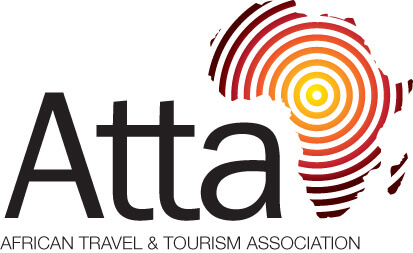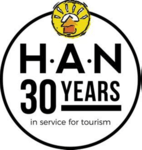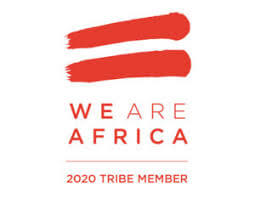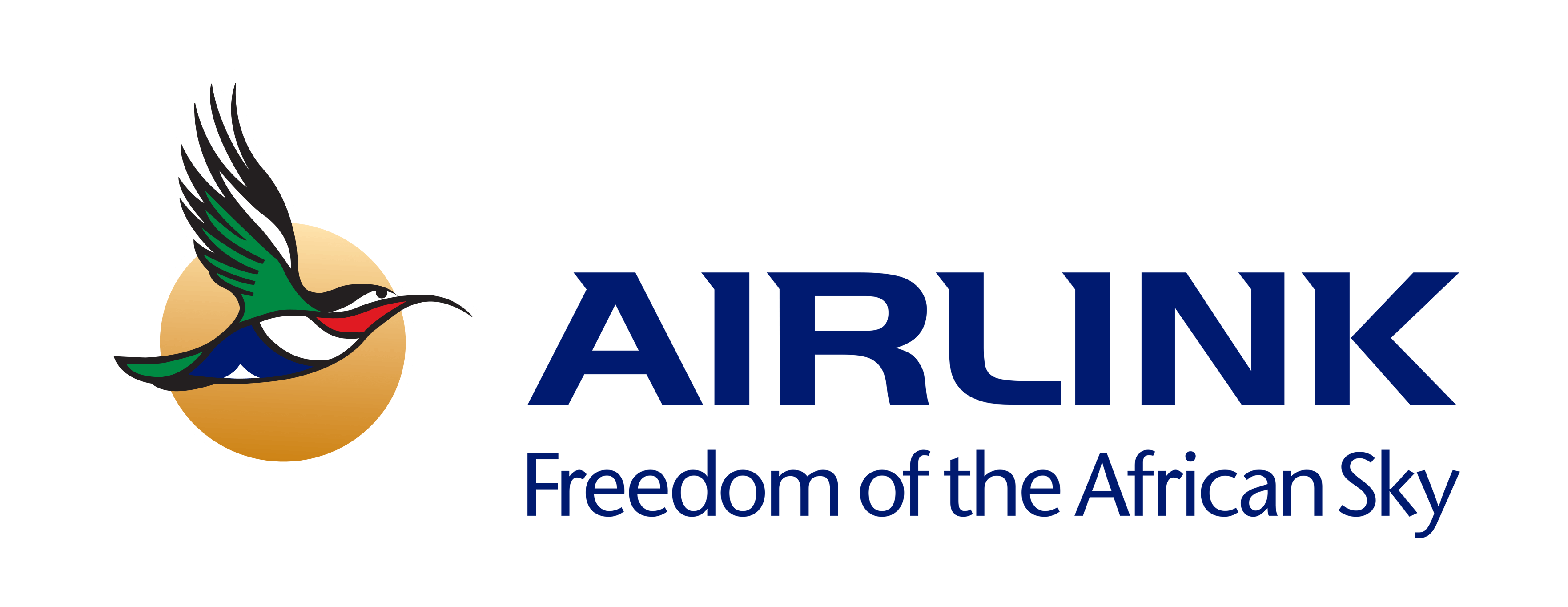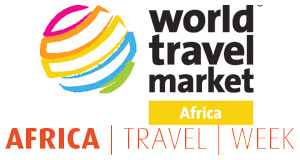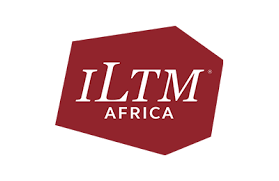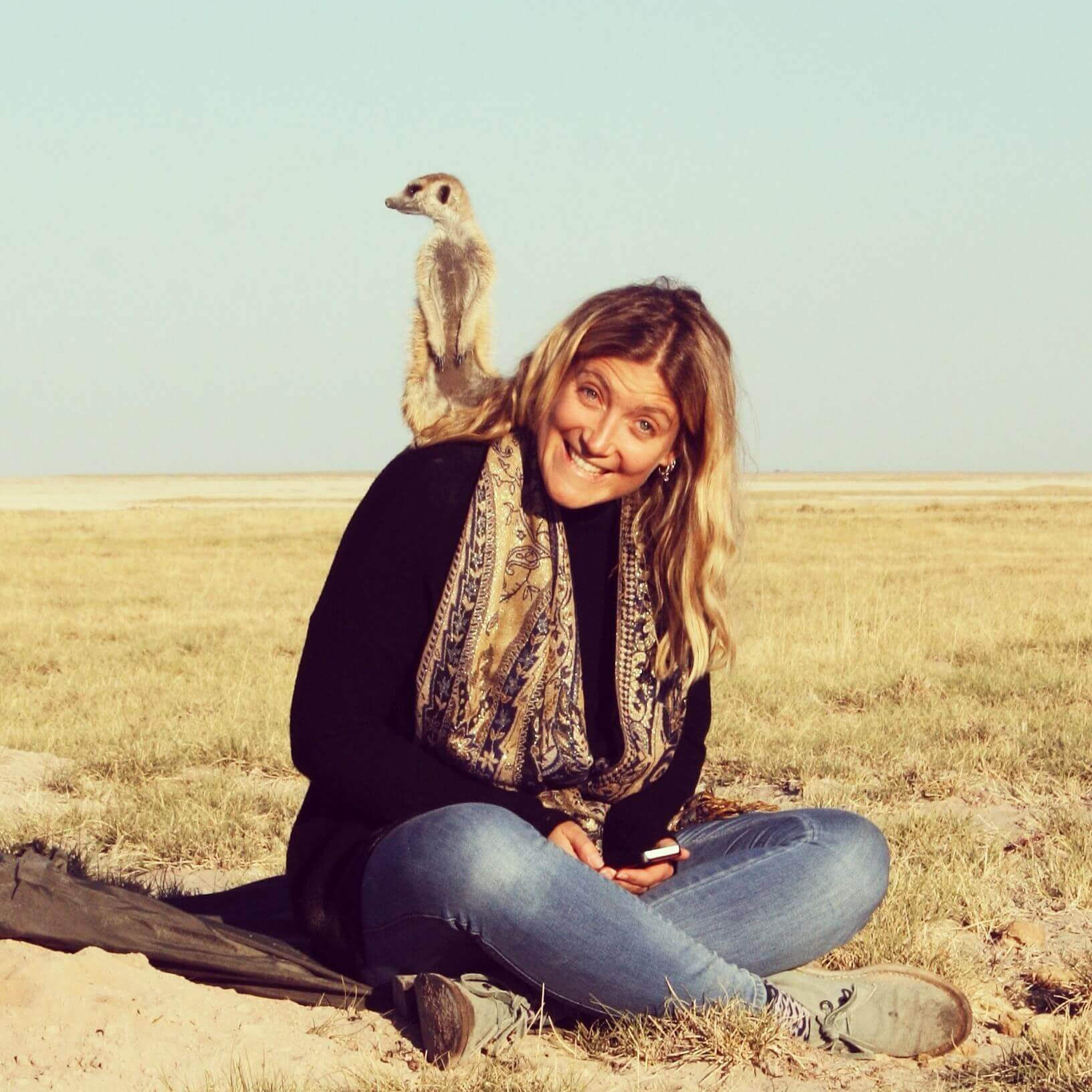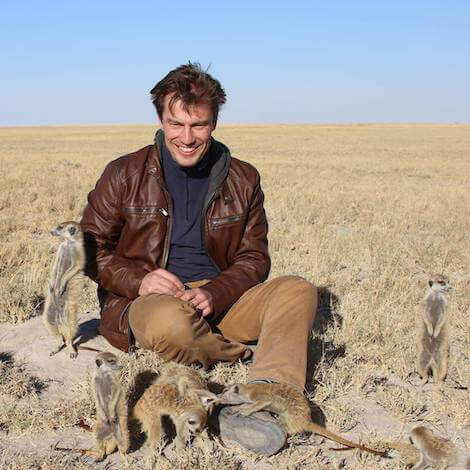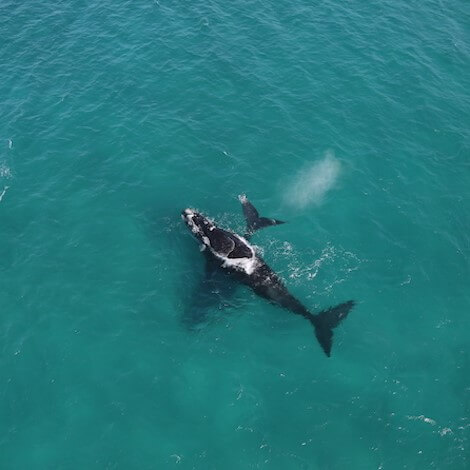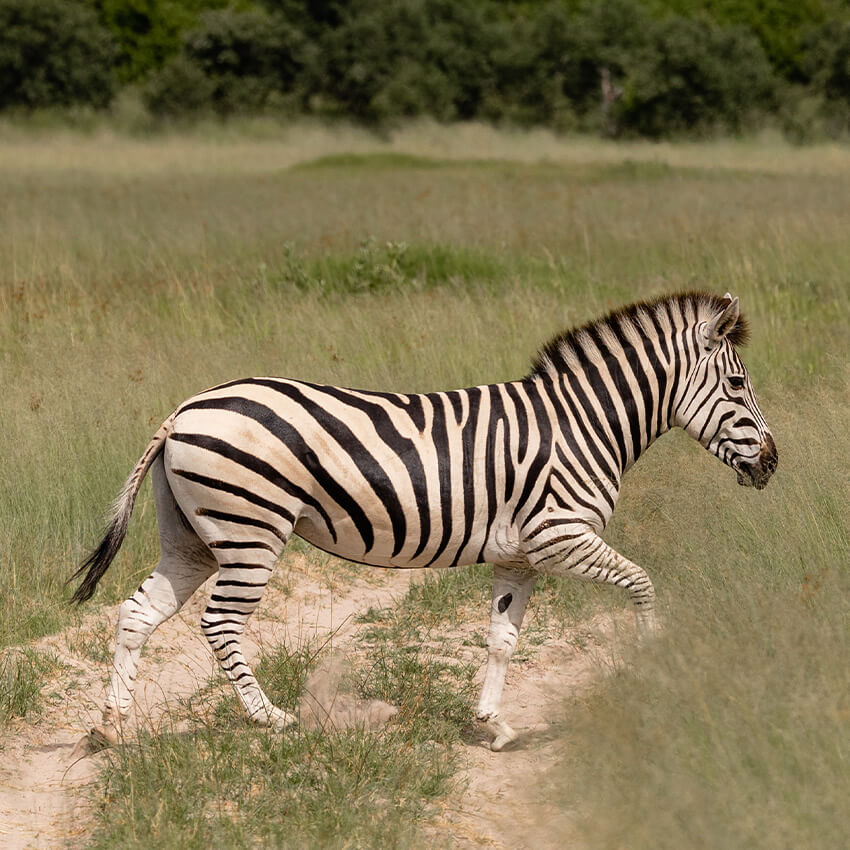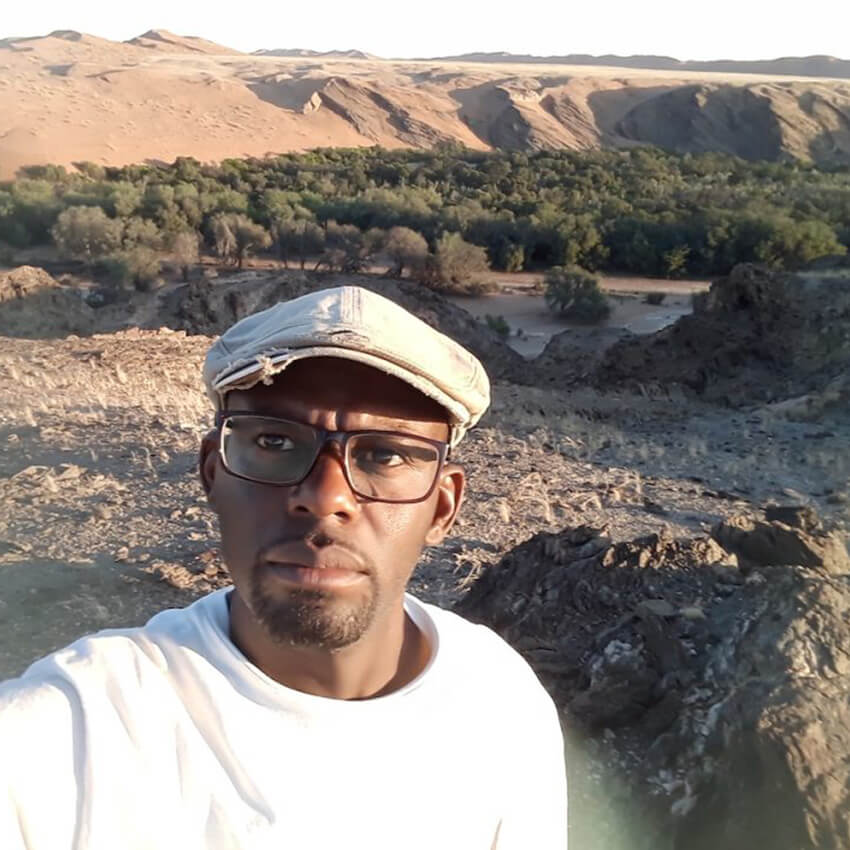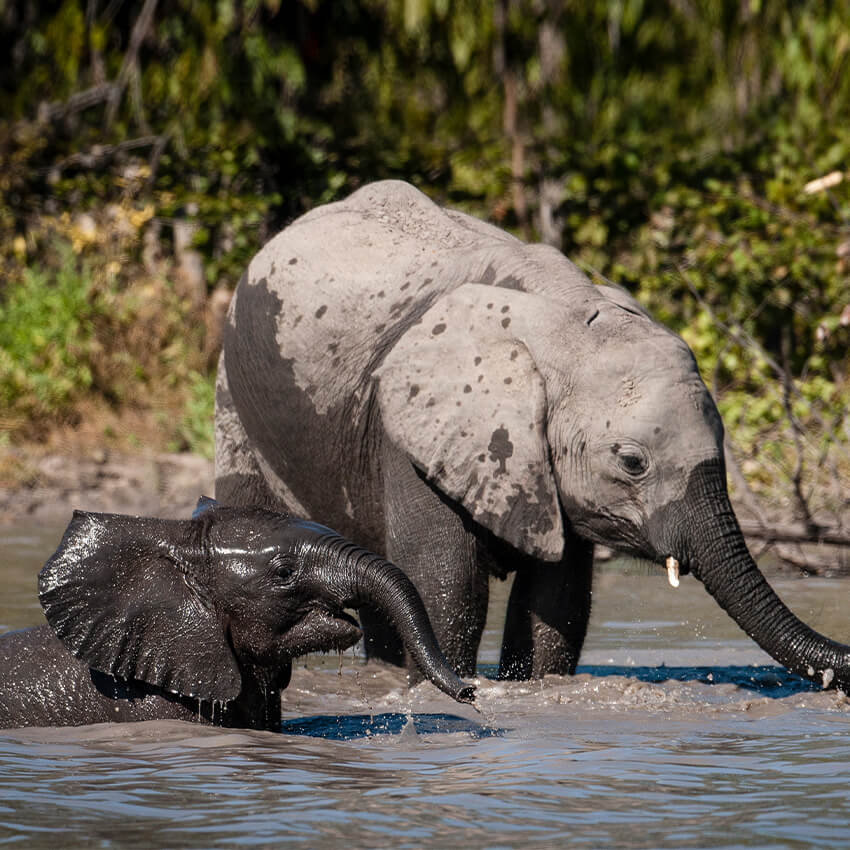Active
Popular
African Wild Dog Day and How We Protect Them
 Pru Allison
Pru Allison
 August 23, 2024
August 23, 2024
August 26th is earmarked as African Wild Dog Day – a date to raise awareness of these tricoloured canids. For those of us in the world of conservation it’s also a day to think about the measures we’re taking to ensure the survival of the species.
Our new lodge Tawana has been garnering oodles of attention for its sumptuous interiors and fantastic safari experience, but what you might not know is that it’s also at the centre of some serious African Wild Dog research and conservation work.
Not far from Tawana is an African Wild Dog research camp which is run by the Botswana Predator Conservation (BPC) and supported by Natural Selection. The team here are focused on long term population monitoring, ecological research and the mitigation of human-wildlife conflict.
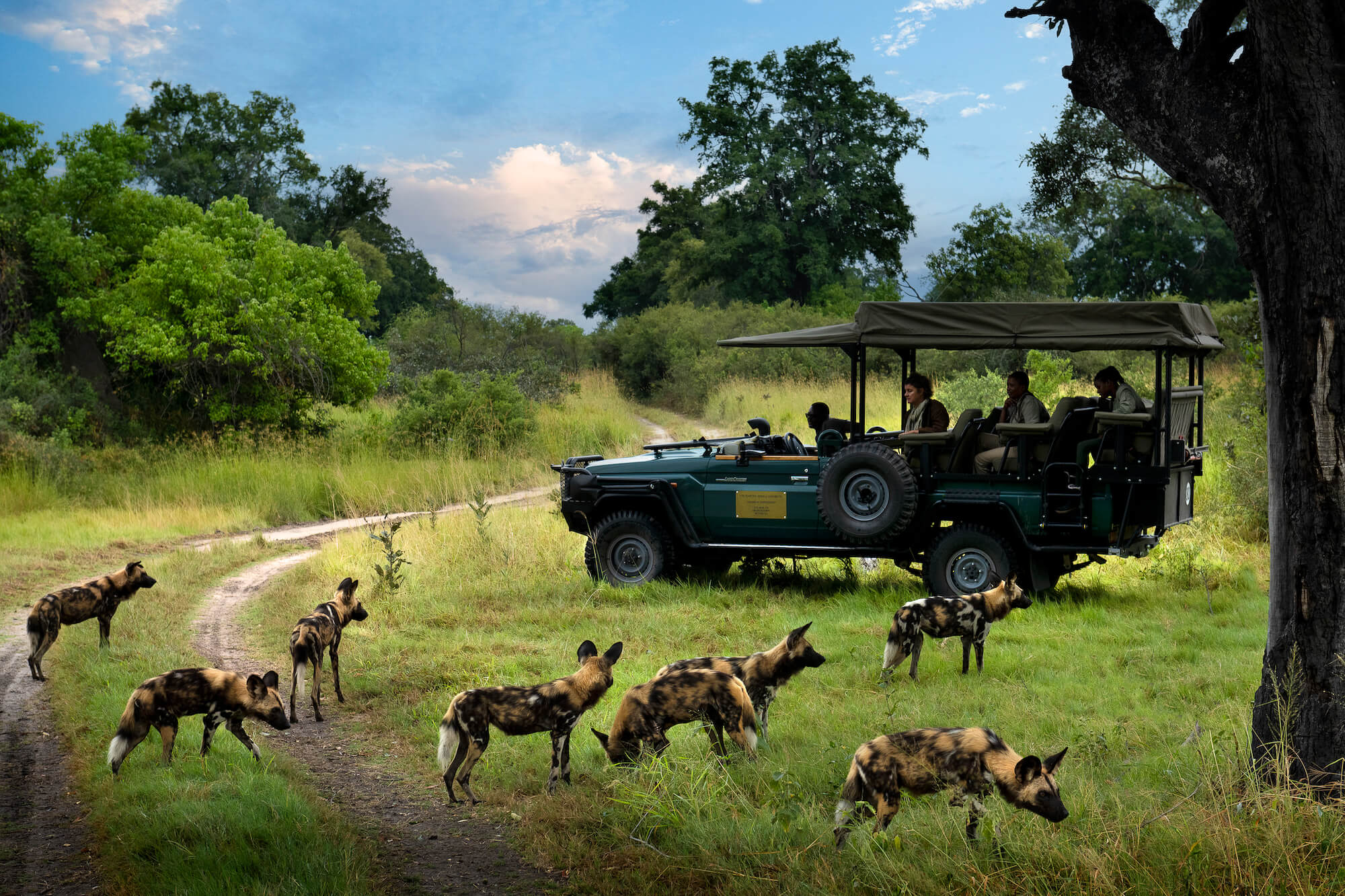
Climate change has brought an additional dimension to these conservation efforts, and thanks to the implementation of collar technology the camp is able to research the impact of global warming on the dogs’ breeding success, hunting behaviour and instances of human-wildlife conflict.
The African Wild Dog is an IUCN Endangered Species. Worldwide, there are estimated to be 6000 individuals remaining, 600 of which are breeding pairs, and here in Botswana there are 800 individuals, 80 of which have formed breeding pairs. Their home ranges have shrunk drastically, mostly due to habitat loss as human populations have grown, and one of their biggest threats is the spread of rabies and distemper. The encroachment of human communities into their ranges has increased this risk, as both the rabies virus and the canine distemper virus are carried by domestic dogs and easily passed on to wild dog populations.
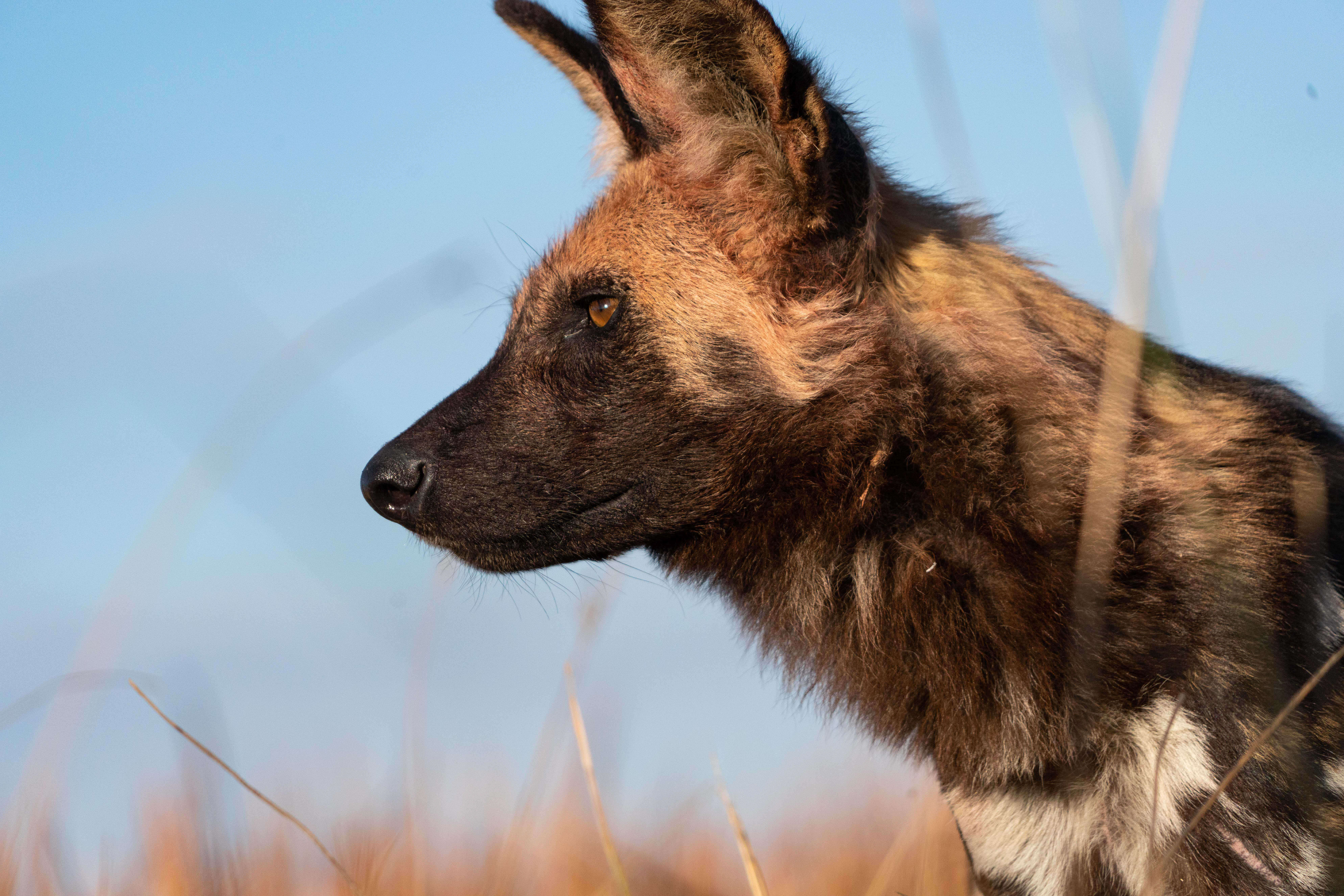
Elsewhere in Botswana we work with BPC and the Maun Animal Welfare Society (MAWS) to ensure the regular vaccination of domestic dogs living within close proximity of the reserve. An outbreak of either virus would decimate the area’s wild dog population and the team administers a vaccination that protects both the domestic dogs and their wild counterparts.
We’ve also worked on de-snaring wild dogs from traps following reports of African wild dogs being caught in snares. This was a successful operation which resulted in six dogs being freed.
We also participate in the Wild Dog Dispersal Study at Khwai Private Reserve (KPR). KPR are supporting a wild dog dispersal study by sending any sighting information to a researcher who is creating a catalogue (based on wild dog unique markings which are visible at birth already). This will help better understand where young dogs disperse to when they leave their natal pack, and what their success is in starting their own pack. This in turn helps us to know which wildlife corridors need to be protected by the government, and to understand better wild dog populations in the KAZA (Kavango Zambezi Trans frontier Conservation Area).
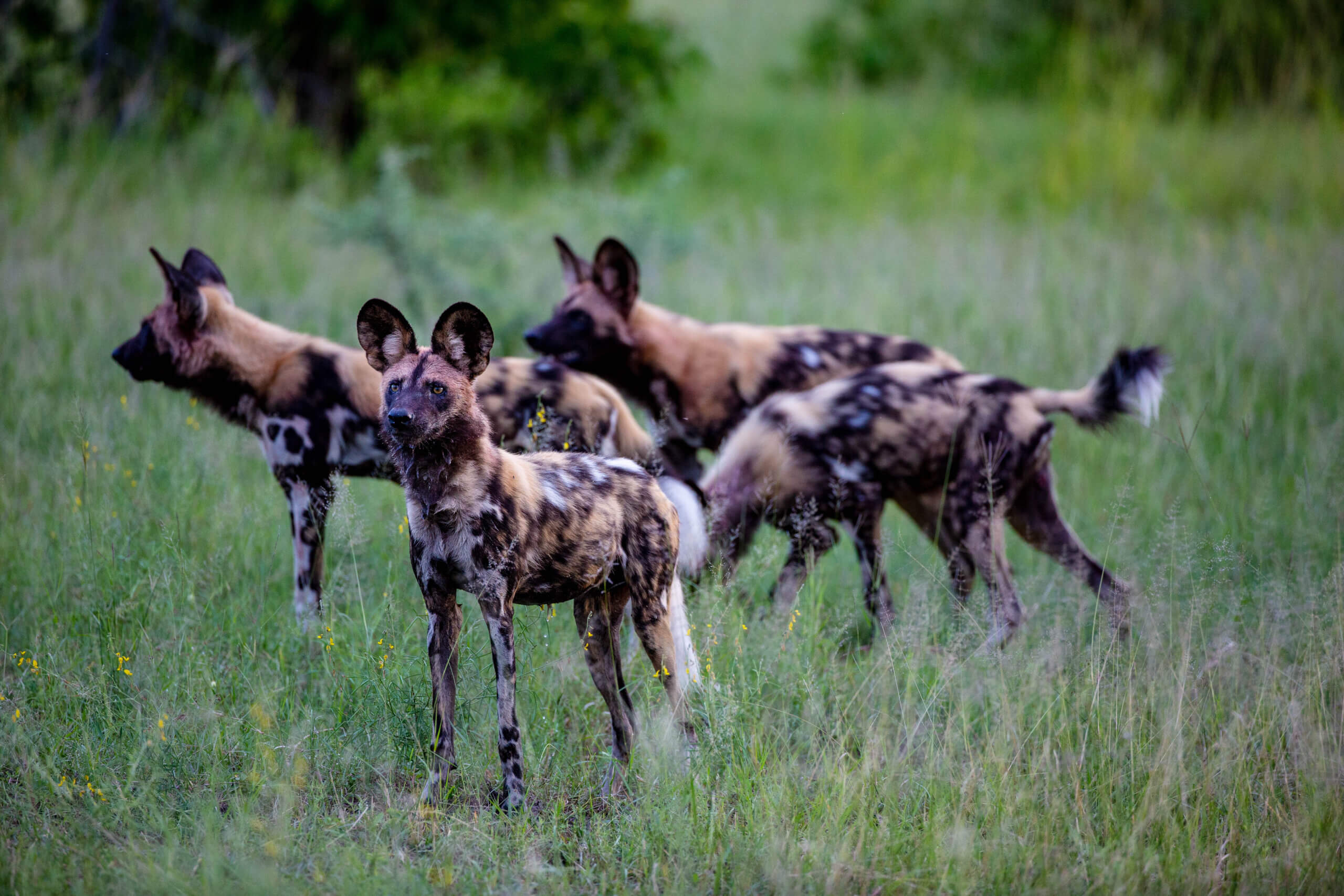
When travellers first arrive on an African safari, the African wild dog is rarely on their list of ‘must see’ species, but overlook them at your peril. Scientifically known as Lycaon pictus which translates as ‘painted wolf’ these enigmatic canids send adrenaline levels through the canvas roof when they hunt. The wild dog hunt begins with a vote on whether to hunt or not. The dogs do this through vocalisations and body language, with the more dominant pack members carrying more sway. Once the hunt is under way, it takes some following as the pace is fast and the movement frantic and seemingly chaotic. In open country the chase tends to be coordinated, whereas it becomes more of a frenzy in woodland. If an antelope ever flies, terrified through camp, you can be sure it’s wild dogs that are in pursuit.
The African wild dogs are deadly with an 80% success rate on their hunts. The kill is shared among the pack. Non-breeding adults will sacrifice their own nourishment to ensure that the pups and elderly or injured dogs are fed. They often do this by regurgitating the meat for these weaker pack members. However difficult the hunt might have been to watch, these caring, tender moments among the wild dogs never fail to cement them as a favourite species. A species well worth saving. If African Wild Dog Day has left you eager to encounter these fascinating canids for yourself, some of our best sightings are happening at Mokolwane, Sable Alley, Duke’s Camp, Duke’s East and North Island Okavango right now.
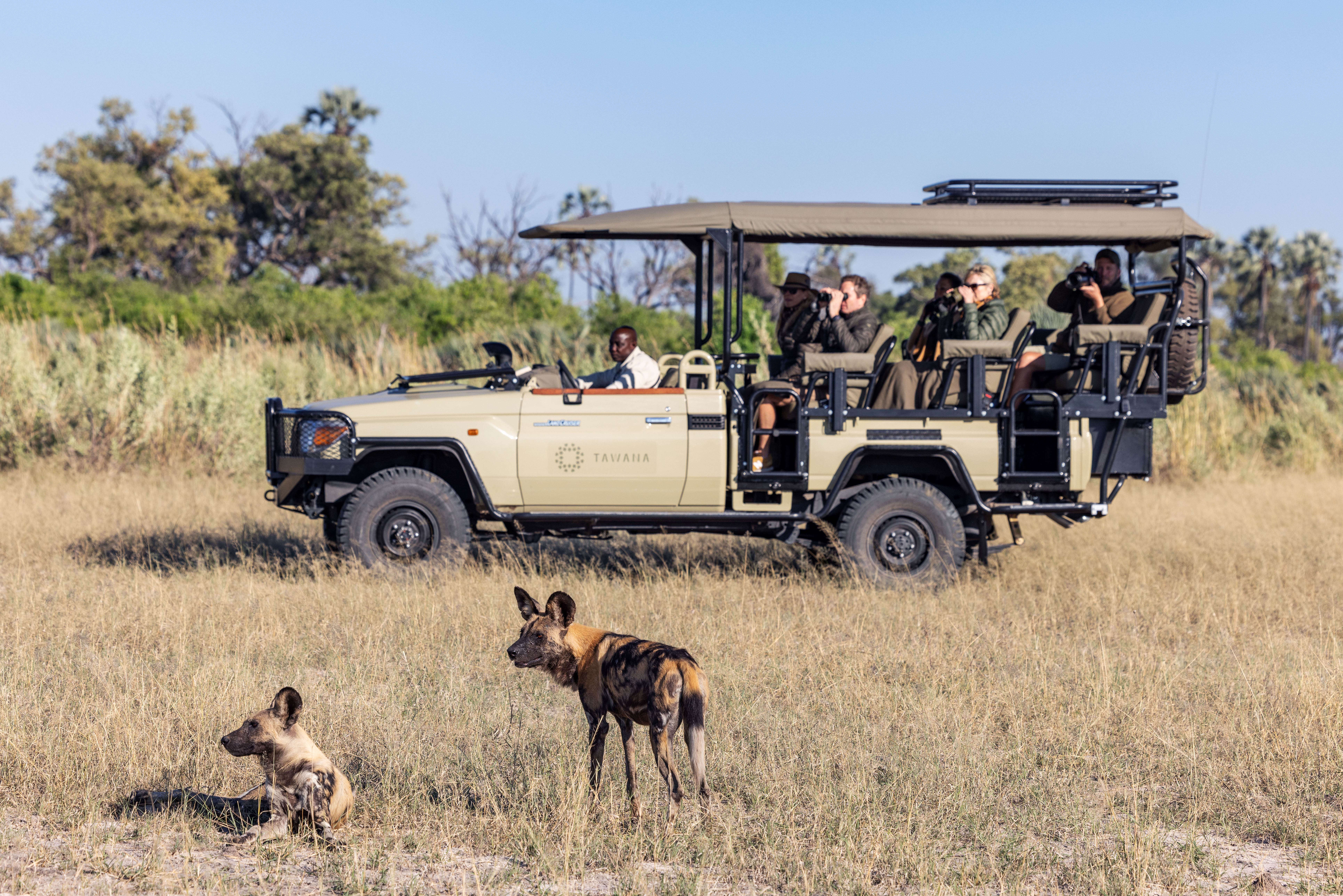
Special Offers
Our special offers are designed to help you experience everything southern Africa has to offer whilst also saving some all-important pennies. Whether you’re about to embark on a once-in-a-lifetime solo trip, or are celebrating a special occasion, have a peek at our offers and see what could be in store for you.
